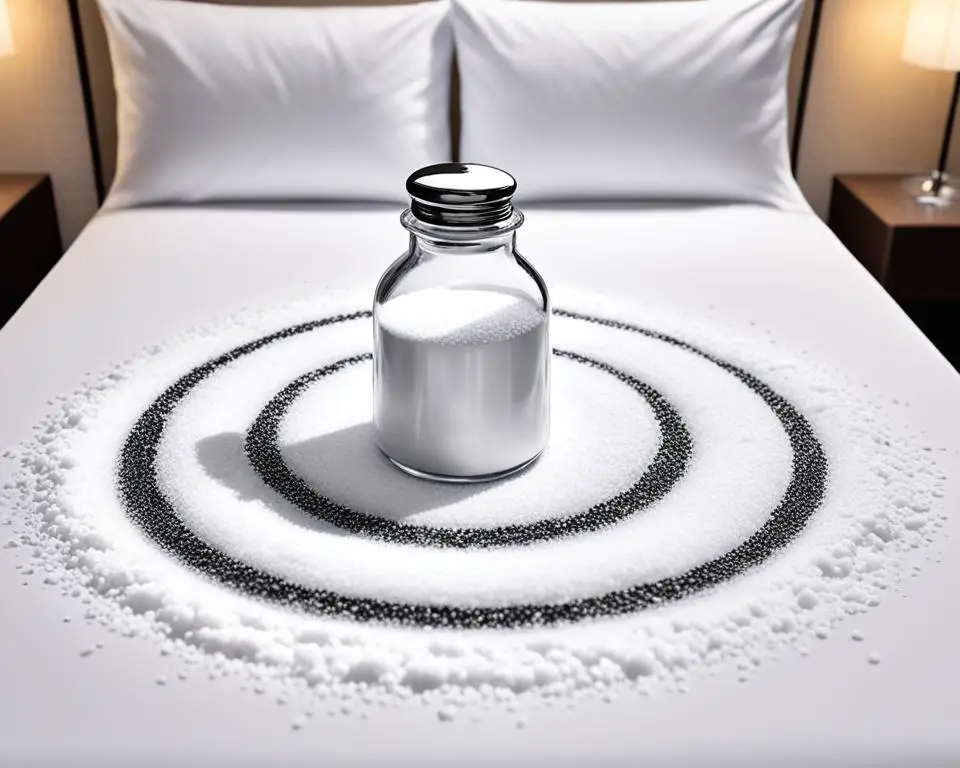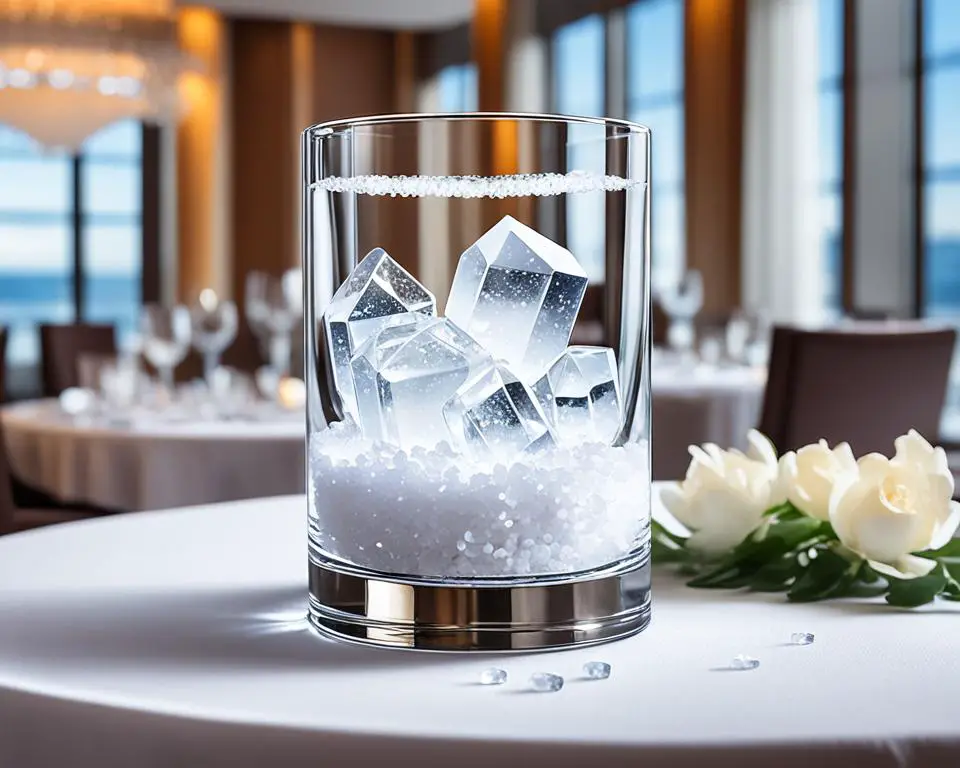Have you ever wondered why salt holds such significance in hotels? It’s more than just a kitchen staple. Salt carries a symbolic meaning that goes beyond its culinary uses. It has been used for generations in spiritual and religious practices, representing purification, protection, and balance. So, what is the deeper meaning behind salt in hotels? Let’s explore the tradition and purity that salt represents and how it can enhance your hotel experience.
Key Takeaways:
- Salt holds symbolic significance in hotels, representing tradition, hospitality, and purity.
- It has spiritual properties, aiding in purification, healing, and protection.
- Hotels can incorporate salt into rituals, such as lunar rituals and spiritual baths, to promote holistic well-being.
- Pink Himalayan salt and sea salt are commonly used in spiritual practices for their purity and mineral content.
- Embracing the significance of salt can create a unique and transformative hotel experience.
The Spiritual Meaning of Salt

Salt is believed to possess spiritual qualities that aid in purification and healing. It has been used in various spiritual and religious practices to cleanse the body and spirit, and to remove negative energy.
In Caribbean spiritual traditions, salt is used to protect homes and sacred spaces from evil or negative energy. Similarly, in African spirituality, salt is believed to repel evil spirits and absorb negative energy.
Salt’s purification properties are also mentioned in religious doctrines, such as in the Bible, where it symbolizes value, purification, protection, permanence, and loyalty.
| Purification and Healing | Protection from Negative Energy |
|---|---|
| Used to cleanse the body and spirit | Repels evil spirits and absorbs negative energy |
| Symbolizes purification and value | Protects homes and sacred spaces |
| Aids in spiritual healing | Represents permanence and loyalty |
Incorporating Salt Into Hotel Rituals

Throughout history, salt has played a significant role in religious and spiritual rituals. In hotels, salt can be incorporated into lunar rituals, spiritual baths, and other ceremonies to enhance spiritual health and balance.
Pink Himalayan salt and sea salt are commonly used in these practices due to their purity and high mineral content. These salts are believed to have unique properties that promote cleansing, healing, and positive energy.
Lunar Rituals
Incorporating salt into lunar rituals can amplify their spiritual significance. The moon is associated with purification and renewal, making it the perfect time to cleanse and recharge your energy.
During a lunar salt ritual, you can create a sacred space by placing a bowl of salt in a moonlit area. As you meditate or perform affirmations, visualize negative energy being absorbed by the salt, leaving you feeling refreshed and renewed.
Spiritual Baths
Spiritual baths are another way to incorporate salt into hotel rituals. They promote relaxation, cleansing, and spiritual alignment.
To create a spiritual bath, fill the tub with warm water and add a handful of salt. As you soak in the saltwater, imagine any negative energy or stress being dissolved and washed away.
For an added touch of luxury, hotels can provide guests with specially curated bath salts infused with essential oils and dried herbs, enhancing the holistic experience.
Ceremonies and Offerings
In addition to lunar rituals and spiritual baths, salt can be used in various ceremonies and offerings to invite positive energy and blessings. For example, hotels can set up salt bowls in key areas to act as energy purifiers or incorporate salt into rituals to bless and cleanse a new space.
By offering guests various types of salt for their personal rituals, hotels can provide a unique experience that supports their spiritual journey. Whether it’s providing Himalayan salt for grounding or sea salt for purification, these offerings promote holistic well-being and a deeper connection to one’s spiritual self.
By incorporating salt into hotel rituals, guests can engage in practices that enhance their overall well-being and foster a deeper sense of connection to themselves and the spiritual realm.
Conclusion
Salt represents more than just a kitchen staple in hotels. Its symbolic meaning encompasses tradition, hospitality, and purity. By incorporating salt into rituals and offering guests the opportunity to engage in spiritual practices, hotels can create a unique and meaningful stay that goes beyond the ordinary.
With its spiritual and healing properties, salt adds a dimension of wellness and balance to the hotel experience. Embracing the significance of salt can elevate the guest experience and create a memorable and transformative journey. Hotels can tap into the centuries-old traditions of salt in spiritual and religious practices to provide guests with a deeper connection to their spiritual selves.
Whether through lunar rituals, spiritual baths, or other ceremonies, the presence of salt in hotels can promote holistic well-being and enhance the guest’s sense of wellness. Pink Himalayan salt and sea salt, known for their purity and mineral content, can be utilized in these practices to create a truly immersive experience.
By understanding and embracing the multifaceted nature of salt, hotels have the opportunity to create a one-of-a-kind guest experience, where tradition, spirituality, and wellness converge. Salt becomes more than just a seasoning, but a powerful symbol that adds depth, meaning, and transformation to every stay.
FAQ
Q: What does salt represent in hotels?
A: Salt represents tradition, hospitality, and purity in hotels. It holds symbolic significance that goes beyond its culinary uses.
Q: What is the spiritual meaning of salt?
A: Salt is believed to possess spiritual qualities that aid in purification and healing. It has been used in various spiritual and religious practices to cleanse the body and spirit, and to remove negative energy.
Q: How is salt incorporated into hotel rituals?
A: Salt can be incorporated into lunar rituals, spiritual baths, and other ceremonies to enhance spiritual health and balance. Pink Himalayan salt and sea salt are commonly used in these practices due to their purity and high mineral content.
